16 Delicious Protein Coffee Recipes That Will Supercharge Your Morning
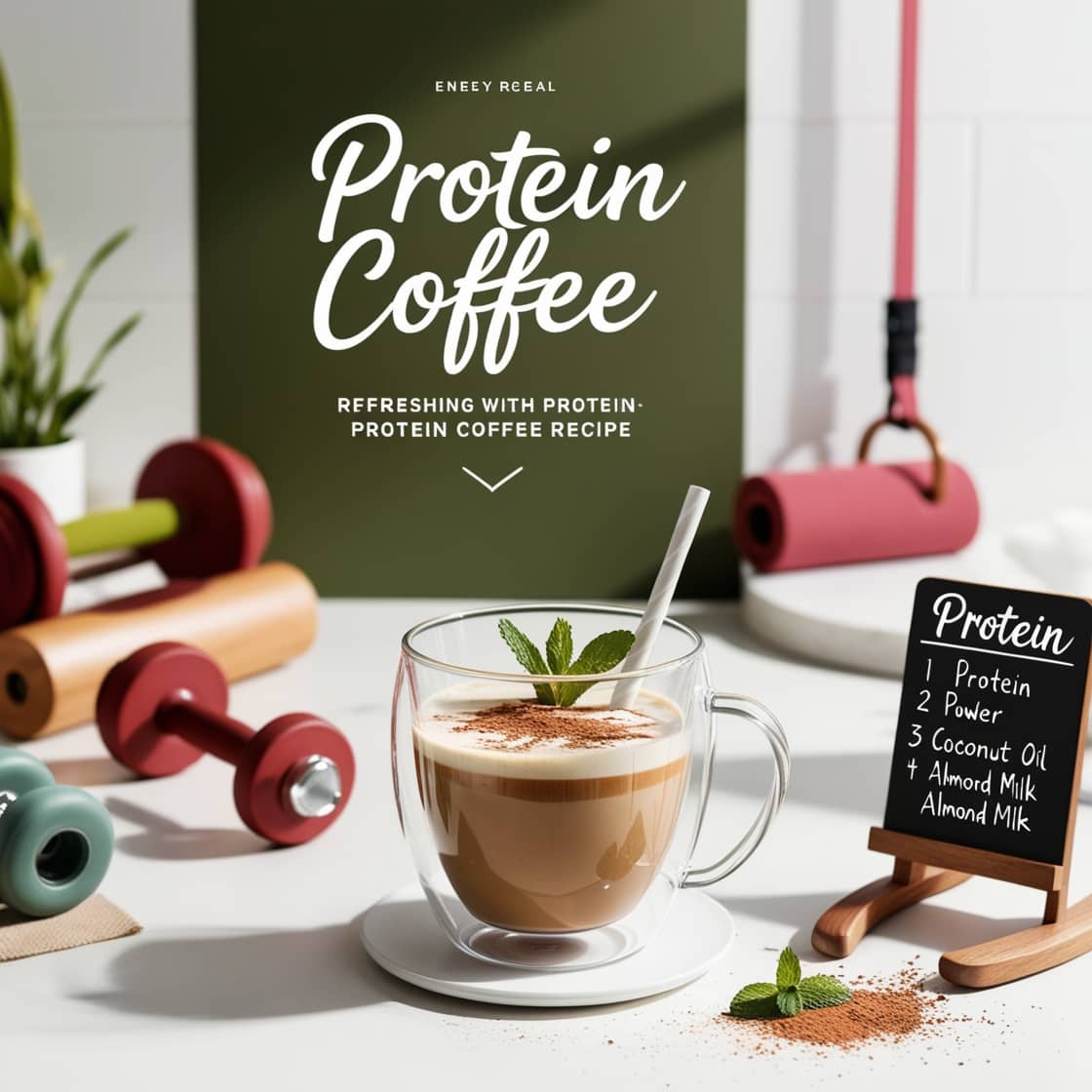
As a coffee enthusiast and fitness advocate, I’ve spent years perfecting protein coffee recipes that deliver both the energizing kick of caffeine and the muscle-building benefits of protein. These protein coffee recipes will revolutionize your morning routine, offering a perfect blend of nutrition and that beloved coffee flavor we crave.
What Is Protein Coffee?
Protein coffee, often called “proffee” in fitness circles, combines the stimulating effects of coffee with high-quality protein supplements. This powerful combination provides your morning caffeine fix and helps with muscle recovery, appetite control, and sustained energy throughout the day.
Benefits of Adding Protein to Your Coffee:
– Improved muscle recovery and growth
– Enhanced satiety and appetite control
– Sustained energy release
– Better blood sugar regulation
– Increased metabolism
– Added nutritional value to your morning routine
Now, let’s dive into these 16 exceptional protein coffee recipes that will transform your morning brew into a nutritional powerhouse.
Classic Protein Coffee Recipe
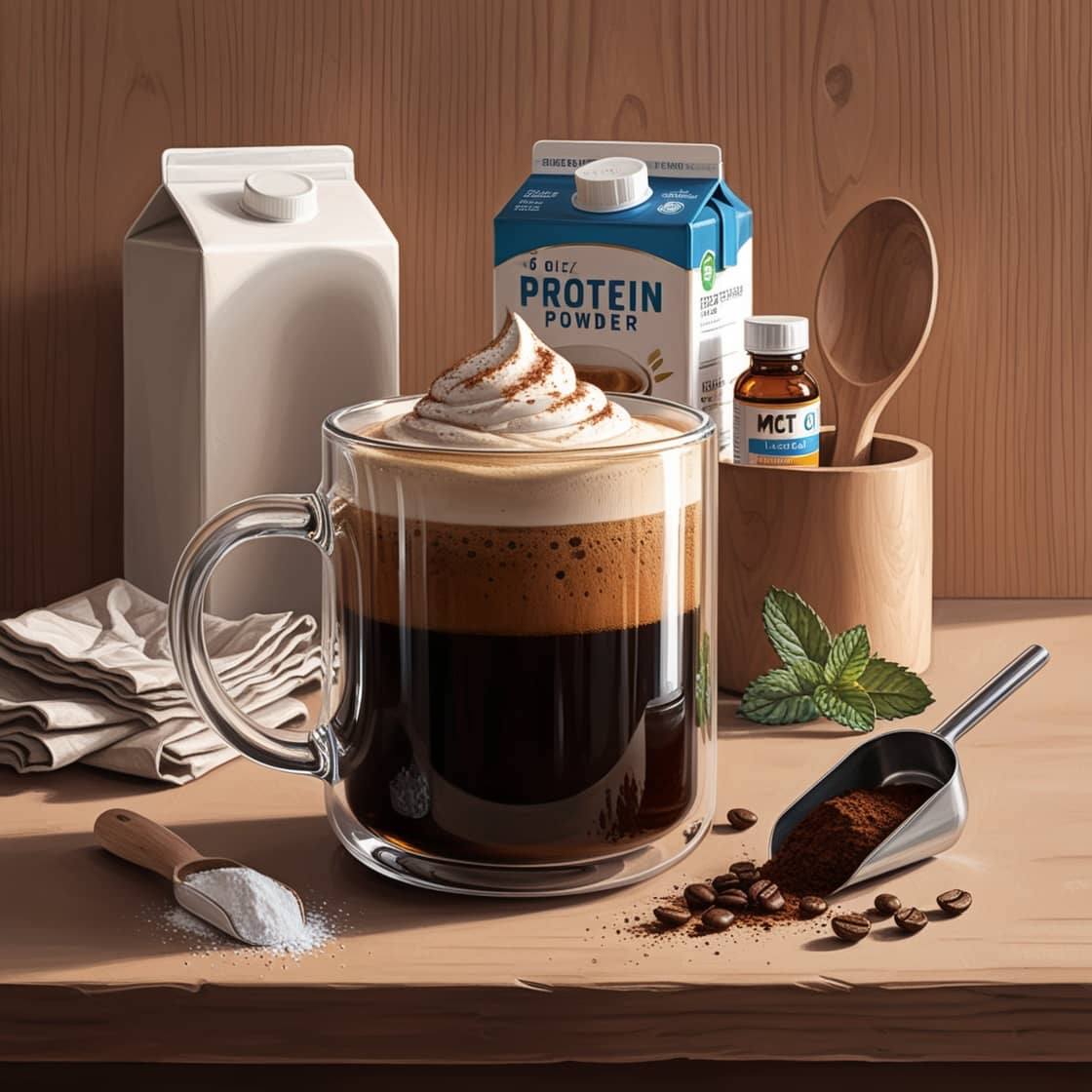
Ingredients
– 8 oz hot brewed coffee
– 1 scoop (25-30g) of protein powder
– Optional: 1 tbsp MCT oil
– Optional: Sweetener to taste
– Optional: Milk or milk alternative
Step-by-Step Instructions
1. Brew Your Coffee
– Use fresh, high-quality coffee beans
– Brew using your preferred method (drip, French press, espresso)
2. Prepare the Protein
– Choose a protein powder that complements coffee flavors
– Vanilla and chocolate proteins work particularly well
3. Blending Technique
– Use a blender or a shaker bottle for best results
– Blend for 15-20 seconds to ensure smooth consistency
– Avoid clumping by adding protein to the cup first, then slowly pouring hot coffee
1. Classic Vanilla Protein Cold Brew

Perfectly chilled, protein-packed, and ready to energize your day ❄️
The ultimate combo of smooth cold brew + vanilla protein goodness 🥤✨ Swipe for the full recipe!
The foundation of great protein coffee recipes starts with this classic combination. This recipe perfectly balances the smooth taste of cold brew with vanilla protein for a refreshing and nutritious drink.
Ingredients:
– 12 oz cold brew coffee
– 1 scoop vanilla whey protein isolate
– 1/4 cup unsweetened almond milk
– Ice cubes
– Optional: stevia or monk fruit sweetener
Preparation Steps:
1. Prepare your cold brew coffee the night before by steeping coarse-ground coffee in cold water for 12-24 hours
2. In a blender, combine cold brew, protein powder, and almond milk
3. Blend until smooth and protein is fully incorporated
4. Pour over ice and adjust sweetness if desired
2. Mocha Protein Latte

This protein coffee recipe combines the indulgent flavors of chocolate and coffee while keeping the protein content high and the calories in check.
Ingredients:
– 8 oz freshly brewed strong coffee
– 1 scoop of chocolate protein powder
– 1 tablespoon unsweetened cocoa powder
– 2 oz steamed unsweetened almond milk
– Optional: sugar-free chocolate syrup
Preparation Steps:
1. Brew your coffee using your preferred method
2. While coffee is hot, blend with protein powder and cocoa
3. Steam almond milk until frothy
4. Top with steamed milk and optional chocolate syrup
3. Caramel Protein Frappuccino

.
🍯 Rich caramel swirls
☁️ Fluffy whipped cream
🥜 Crunchy nuts
🥛 Protein-packed goodness
.
The perfect post-workout treat that tastes like dessert! 😋
This protein-packed version of the popular frozen coffee drink delivers all the flavor without the excess sugar and calories.
Ingredients:
– 8 oz cold brew coffee
– 1 scoop caramel or vanilla protein powder
– 1 tablespoon sugar-free caramel syrup
– 1 cup ice
– 1/4 cup unsweetened almond milk
– Optional: sugar-free whipped cream
Preparation Steps:
1. Combine all ingredients in a high-speed blender
2. Blend until smooth and creamy
3. Top with whipped cream and a drizzle of caramel syrup if desired
4. Cinnamon Roll Protein Coffee
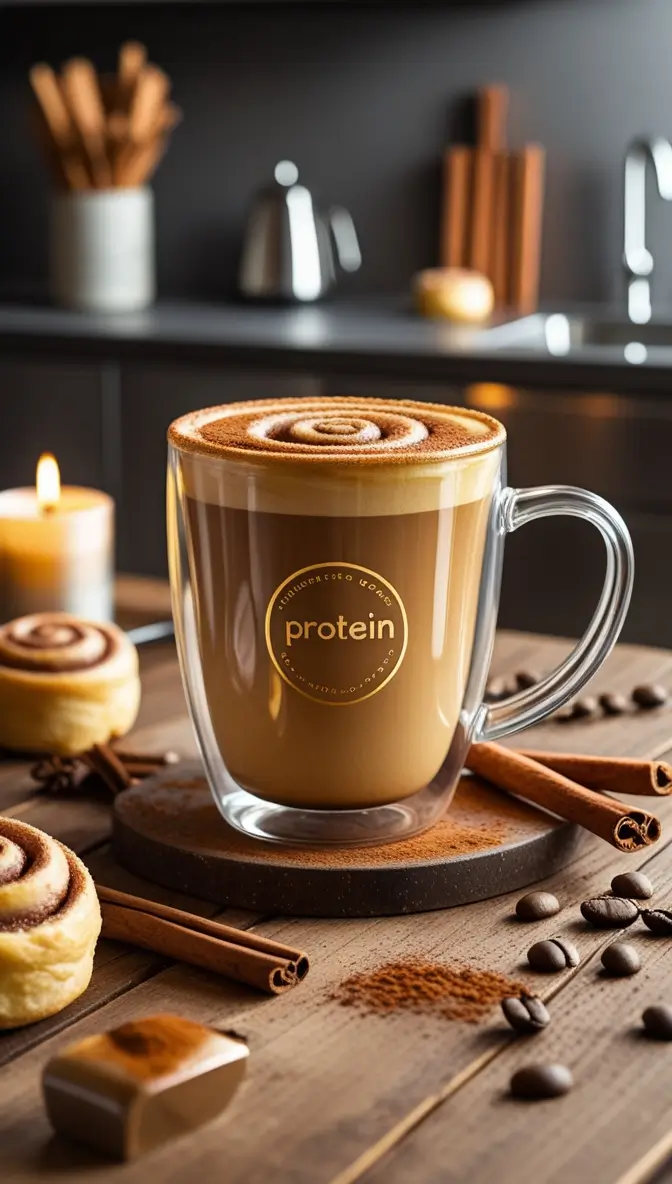
This protein coffee recipe captures the essence of a fresh cinnamon roll in a healthy, protein-rich beverage.
Ingredients:
– 10 oz hot coffee
– 1 scoop vanilla protein powder
– 1/2 teaspoon ground cinnamon
– 1/4 teaspoon vanilla extract
– 2 tablespoons unsweetened almond milk
– Optional: sugar-free cinnamon syrup
Preparation Steps:
1. Brew hot coffee
2. In a blender, combine all ingredients
3. Blend until smooth and frothy
4. Sprinkle additional cinnamon on top
5. Peanut Butter Cup Protein Coffe

☕️ Creamy protein coffee base
Combining the beloved flavors of peanut butter and chocolate, this protein coffee recipe delivers a satisfying and nutritious start to your day.
Ingredients:
– 8 oz brewed coffee
– 1 scoop of chocolate protein powder
– 1 tablespoon natural peanut butter
– 1/4 cup unsweetened almond milk
– Ice (if serving cold)
– Optional: cocoa nibs for topping
Preparation Steps:
1. Blend hot coffee with protein powder until smooth
2. Add peanut butter and blend again
3. Add almond milk and ice if desired
4. Top with cocoa nibs if using
6. Coconut Cream Protein Iced Coffee
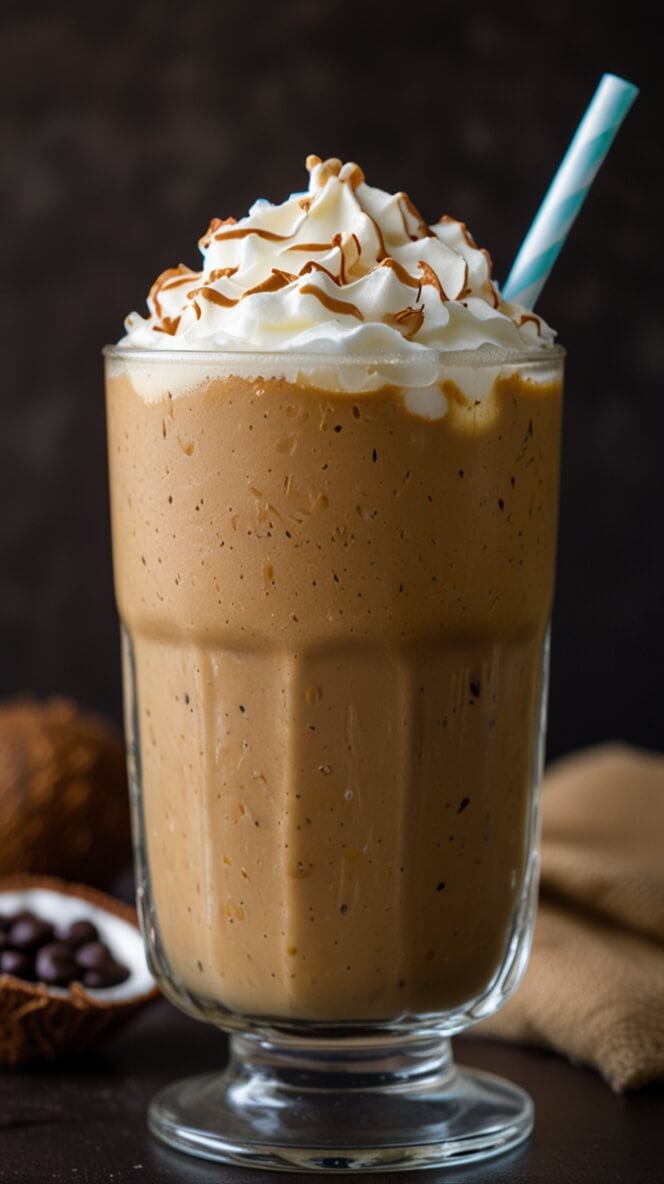
This tropical-inspired protein coffee recipe offers a creamy, refreshing twist on traditional iced coffee.
Ingredients:
– 10 oz cold brew coffee
– 1 scoop vanilla protein powder
– 2 tablespoons coconut cream
– 1/4 cup unsweetened coconut milk
– Ice cubes
– Optional: toasted coconut flakes
Preparation Steps:
1. Blend cold brew with protein powder
2. Add coconut cream and milk
3. Shake or blend with ice
4. Top with toasted coconut if desired
7. Hazelnut Protein Coffee
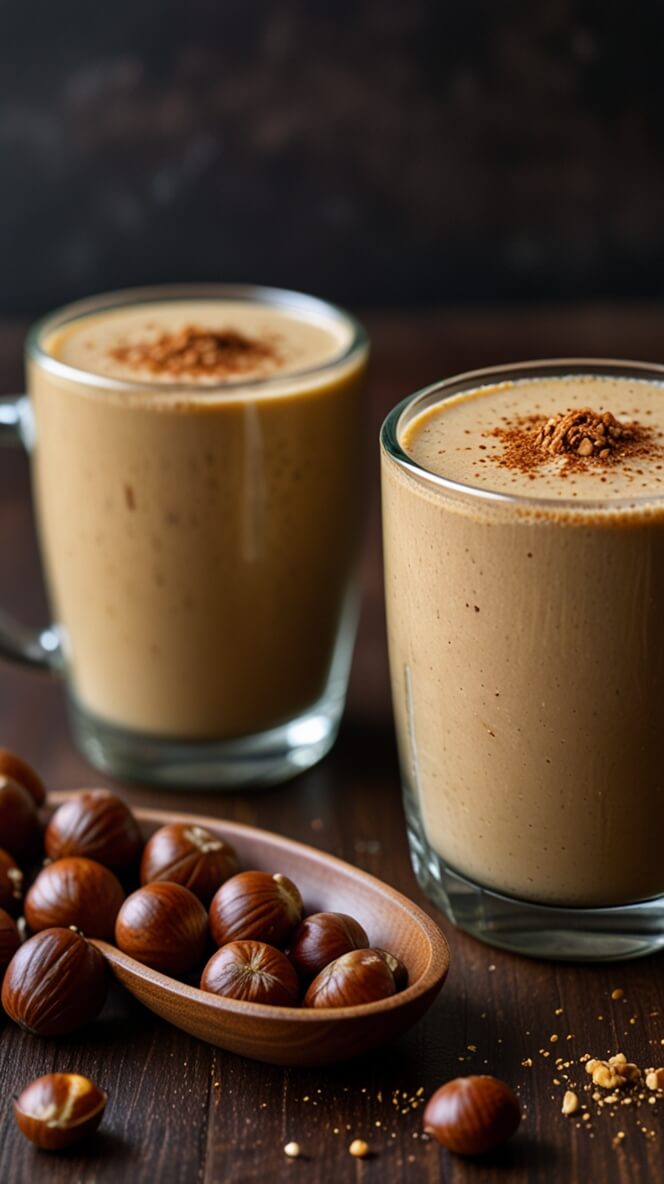
A nutty, rich protein coffee recipe that’s perfect for those who love the classic combination of coffee and hazelnuts.
Ingredients:
– 8 oz fresh brewed coffee
– 1 scoop hazelnut or vanilla protein powder
– 1 tablespoon sugar-free hazelnut syrup
– 2 oz unsweetened almond milk
– Optional: crushed hazelnuts for garnish
Preparation Method:
1. Combine hot coffee with protein powder
2. Add hazelnut syrup and blend
3. Top with steamed almond milk
4. Garnish with crushed hazelnuts if desired
8. Mint Chocolate Protein Coffee
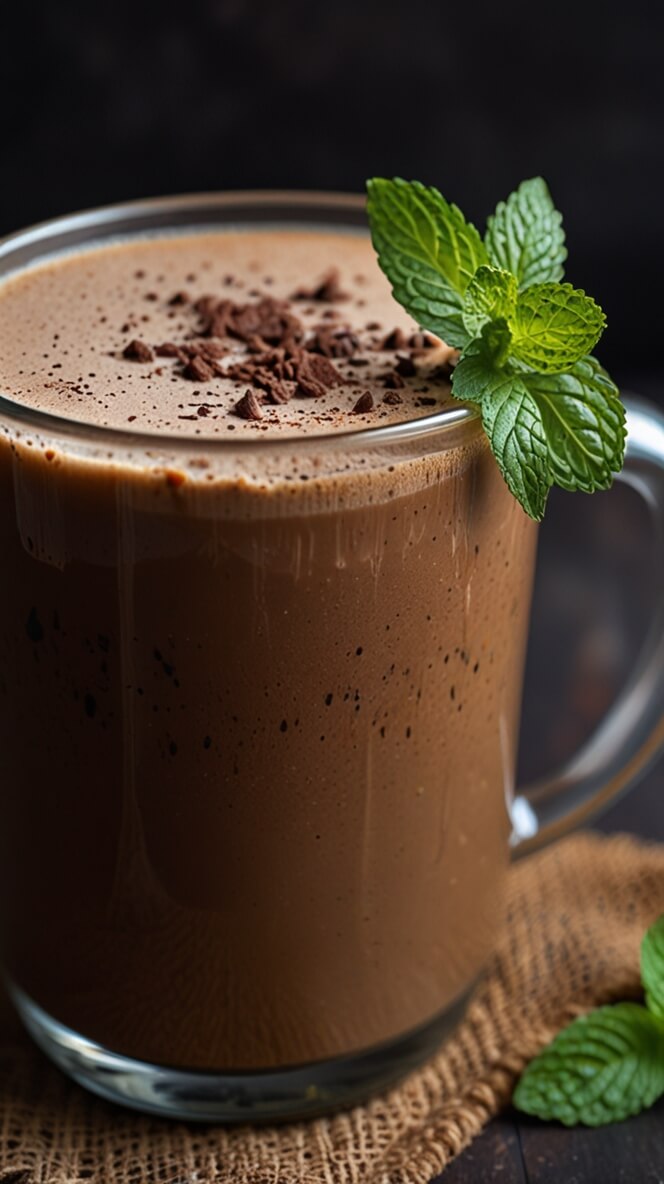
This refreshing protein coffee recipe combines the cooling effect of mint with rich chocolate flavors.
Ingredients:
– 8 oz brewed coffee
– 1 scoop of chocolate protein powder
– 1/4 teaspoon peppermint extract
– 2 oz unsweetened almond milk
– Optional: sugar-free chocolate chips
– Ice (if serving cold)
Preparation Steps:
1. Blend coffee with protein powder
2. Add peppermint extract carefully (it’s strong!)
3. Add almond milk and ice if desired
4. Top with chocolate chips if using
9. Salted Caramel Protein Coffee
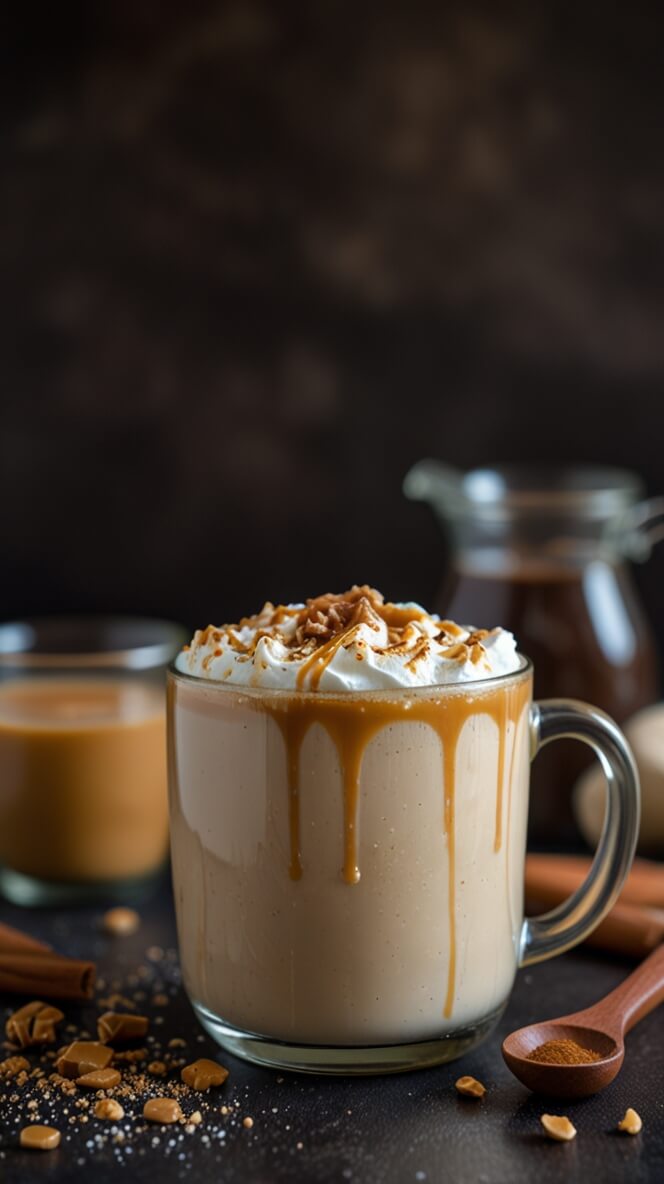
A sophisticated protein coffee recipe that balances sweet and salty flavors perfectly.
Ingredients:
– 10 oz brewed coffee
– 1 scoop caramel protein powder
– 1/4 teaspoon sea salt
– 2 tablespoons sugar-free caramel sauce
– 2 oz unsweetened almond milk
– Optional: whipped cream
Preparation Steps:
1. Blend coffee with protein powder
2. Add caramel sauce and salt
3. Top with almond milk
4. Finish with whipped cream if desired
10. Banana Bread Protein Coffee
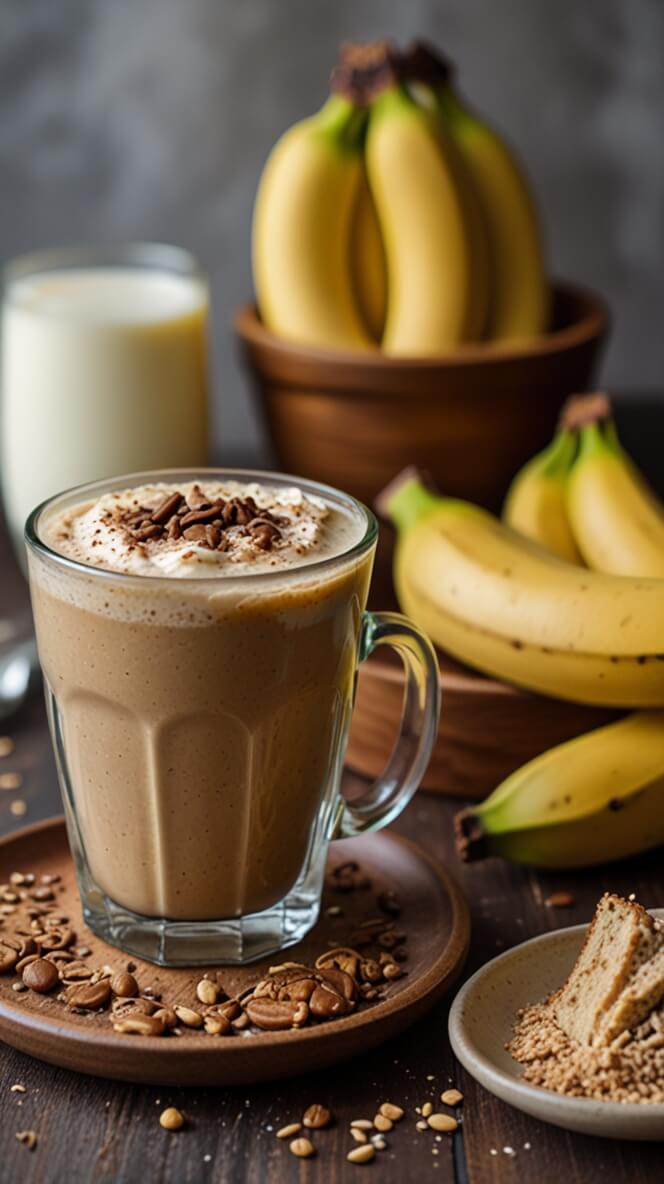
This protein coffee recipe captures the comforting flavors of fresh banana bread in beverage form.
Ingredients:
– 8 oz hot coffee
– 1 scoop vanilla protein powder
– 1/2 small banana
– 1/4 teaspoon cinnamon
– 1/8 teaspoon nutmeg
– 2 oz unsweetened almond milk
Preparation Steps:
1. Combine all ingredients in a blender
2. Blend until smooth and creamy
3. Serve hot or over ice
4. Sprinkle with additional cinnamon if desired
11. Maple Pecan Protein Coffee
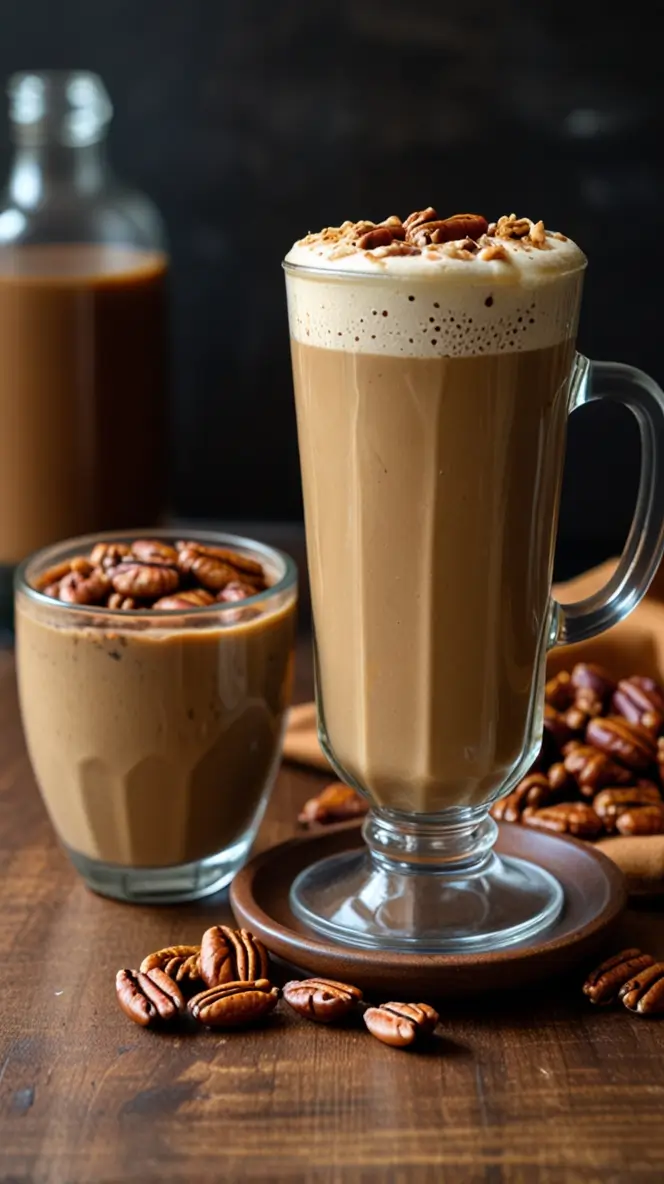
A protein coffee recipe that brings together the classic flavors of maple and pecan in a nutritious package.
Ingredients:
– 8 oz brewed coffee
– 1 scoop vanilla protein powder
– 1 tablespoon sugar-free maple syrup
– 1/4 teaspoon pecan extract
– 2 oz unsweetened almond milk
– Optional: chopped pecans for garnish
Preparation Steps:
1. Blend coffee with protein powder
2. Add maple syrup and pecan extract
3. Mix in almond milk
4. Top with chopped pecans if desired
12. Tiramisu Protein Coffee
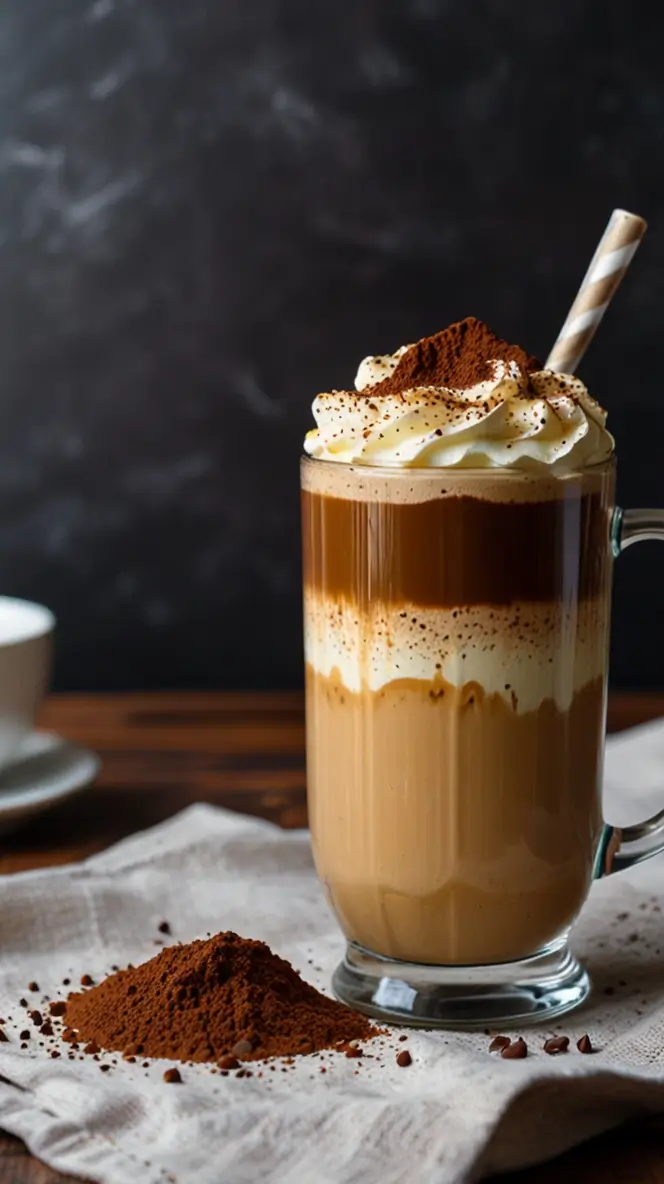
This protein coffee recipe recreates the beloved Italian dessert in a healthy, protein-rich form.
Ingredients:
– 8 oz strong brewed coffee
– 1 scoop vanilla protein powder
– 1 tablespoon cocoa powder
– 1/4 teaspoon vanilla extract
– 2 oz unsweetened almond milk
– Optional: cocoa powder for dusting
Preparation Steps:
1. Blend coffee with protein powder
2. Add cocoa powder and vanilla extract
3. Mix in almond milk
4. Dust with cocoa powder before serving
13. Cookies and Cream Protein Coffee
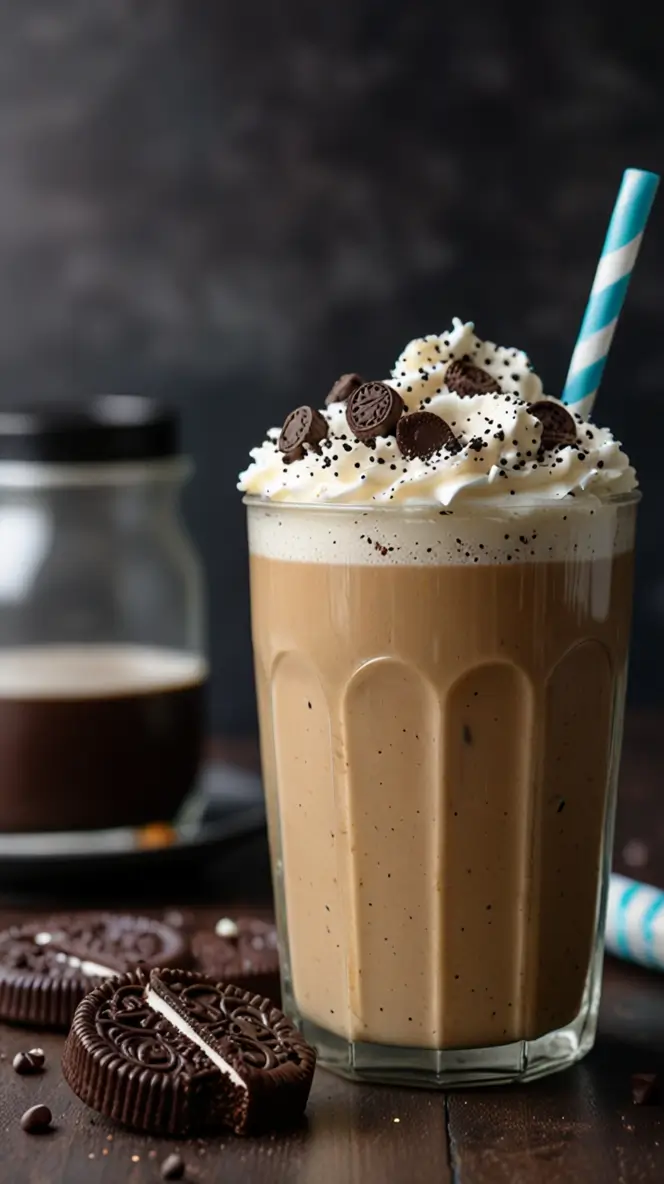
A decadent protein coffee recipe that satisfies sweet cravings while providing valuable nutrition.
Ingredients:
– 10 oz cold brew coffee
– 1 scoop cookies and cream protein powder
– 2 oz unsweetened almond milk
– 1 tablespoon sugar-free chocolate syrup
– Ice cubes
– Optional: sugar-free cookie pieces
Preparation Method:
1. Blend cold brew with protein powder
2. Add chocolate syrup and almond milk
3. Pour over ice
4. Top with cookie pieces if desired
14. Pumpkin Spice Protein Coffee
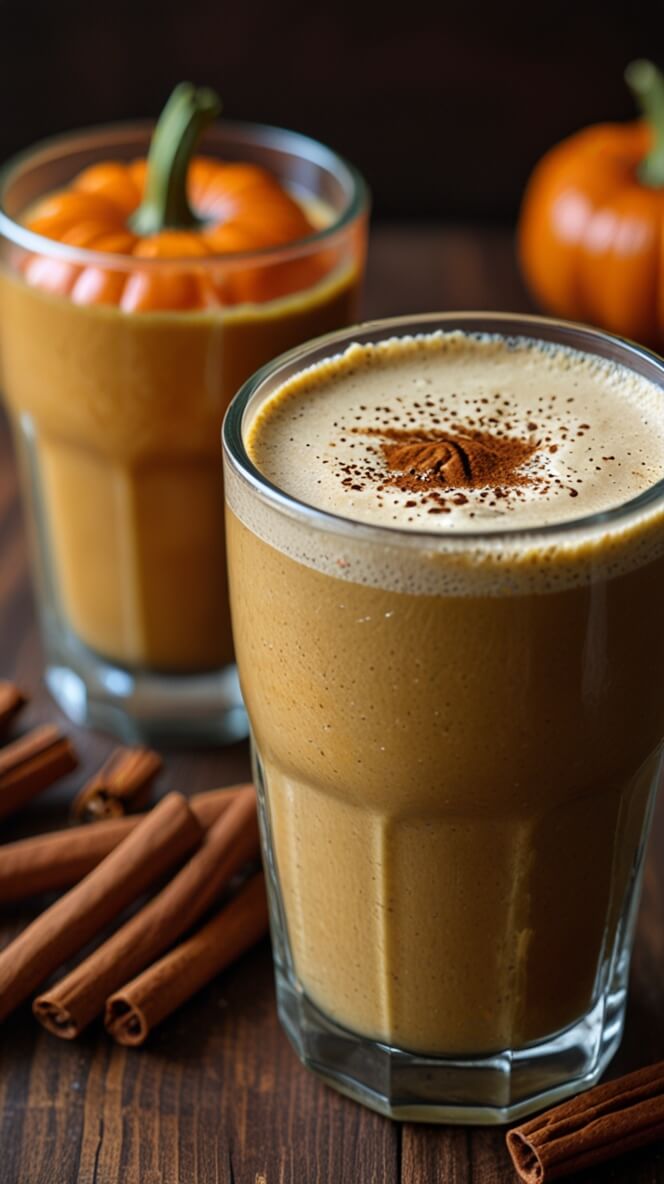
This seasonal protein coffee recipe brings together warming spices and rich coffee flavors.
Ingredients:
– 8 oz brewed coffee
– 1 scoop vanilla protein powder
– 2 tablespoons pumpkin puree
– 1/2 teaspoon pumpkin pie spice
– 2 oz unsweetened almond milk
– Optional: sugar-free whipped cream
Preparation Steps:
1. Blend coffee with protein powder
2. Add pumpkin puree and spices
3. Mix in almond milk
4. Top with whipped cream if desired
15. Irish Cream Protein Coffee

A protein coffee recipe that captures the essence of Irish cream without the alcohol.
Ingredients:
– 8 oz brewed coffee
– 1 scoop vanilla protein powder
– 1 tablespoon sugar-free Irish cream syrup
– 2 oz unsweetened almond milk
– Optional: cocoa powder for dusting
Preparation Steps:
1. Blend coffee with protein powder
2. Add Irish cream syrup
3. Mix in almond milk
4. Dust with cocoa powder if desired
16. Almond Joy Protein Coffee
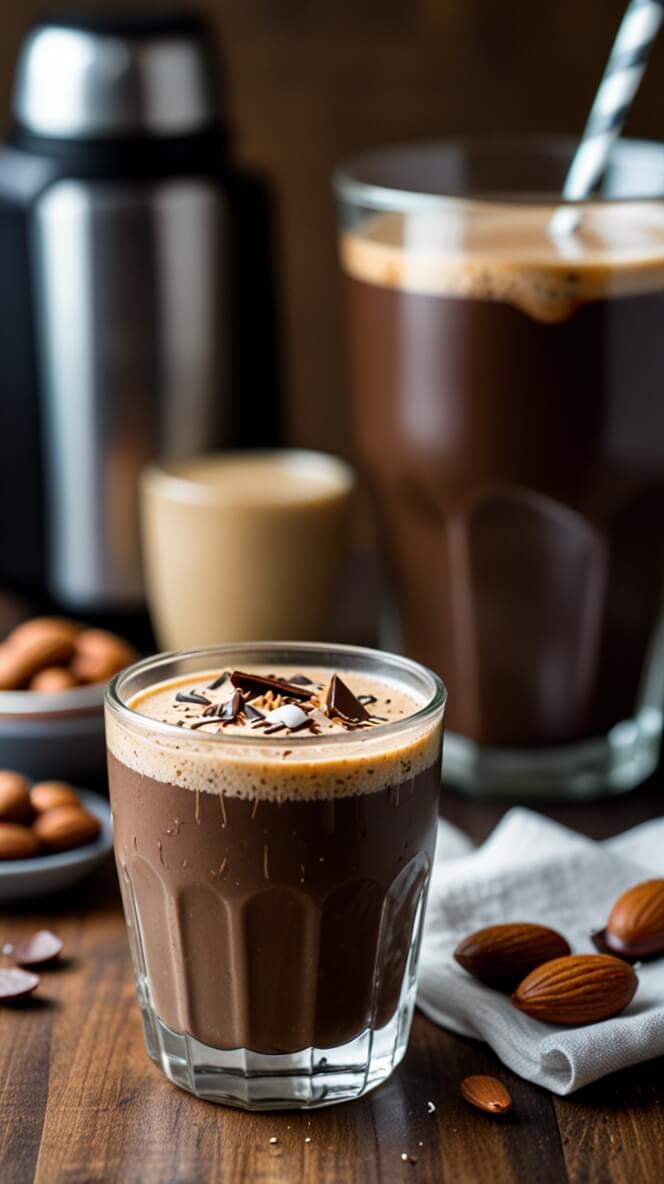
This protein coffee recipe combines the tropical sweetness of coconut with rich chocolate and almond flavors.
Ingredients
– 8 oz brewed coffee
– 1 scoop of chocolate protein powder
– 1 tablespoon coconut cream
– 1/4 teaspoon almond extract
– 2 oz unsweetened almond milk
– Optional: toasted coconut and almonds for topping
Preparation Steps:
1. Blend coffee with protein powder
2. Add coconut cream and almond extract
3. Mix in almond milk
4. Top with toasted coconut and almonds if desired
Tips for Perfect Protein Coffee
To ensure your protein coffee recipes turn out perfectly every time, keep these essential tips in mind:
1. Temperature Matters
– Use room temperature or cold liquid when mixing with protein powder to prevent clumping
– If using hot coffee, blend protein powder with a small amount of cold liquid first
2. Choose the Right Protein
– Whey isolate tends to mix best
– Look for proteins specifically designed for hot beverages
– Consider unflavored options for more versatility
3. Mixing Methods
– Use a blender for the smoothest results
– A shaker bottle works well for cold recipes
– Handheld frothers are great for hot beverages
4. Storage and Prep
– Prepare cold brew in advance
– Mix protein just before consuming
– Don’t store mixed protein coffee for extended periods
Conclusion
These 16 protein coffee recipes offer a delicious way to combine your daily caffeine fix with essential protein. Whether you prefer hot or cold coffee, indulgent or simple flavors, there’s a protein coffee recipe here for everyone. Remember to experiment with the recipes and adjust them to your taste preferences and nutritional needs.
The beauty of protein coffee recipes lies in their versatility and ability to support both your energy needs and fitness goals. By incorporating these recipes into your routine, you’ll transform your ordinary morning coffee into a nutritional powerhouse that helps fuel your day and support your health objectives.
Remember to start with quality ingredients, follow the mixing tips, and most importantly, enjoy the process of creating these delicious and nutritious beverages. Your morning coffee routine will never be the same!
Frequently Asked Questions
Q: Can I make protein coffee if I’m lactose intolerant?
A: Yes, use plant-based protein powders and lactose-free milk alternatives.
Q: How often should I drink protein coffee?
A: 1-2 servings daily is typically safe, but consult a nutritionist for personalized advice.
Q: Can protein coffee replace a meal?
A: While nutritious, it’s best used as a supplement, not a complete meal replacement.






